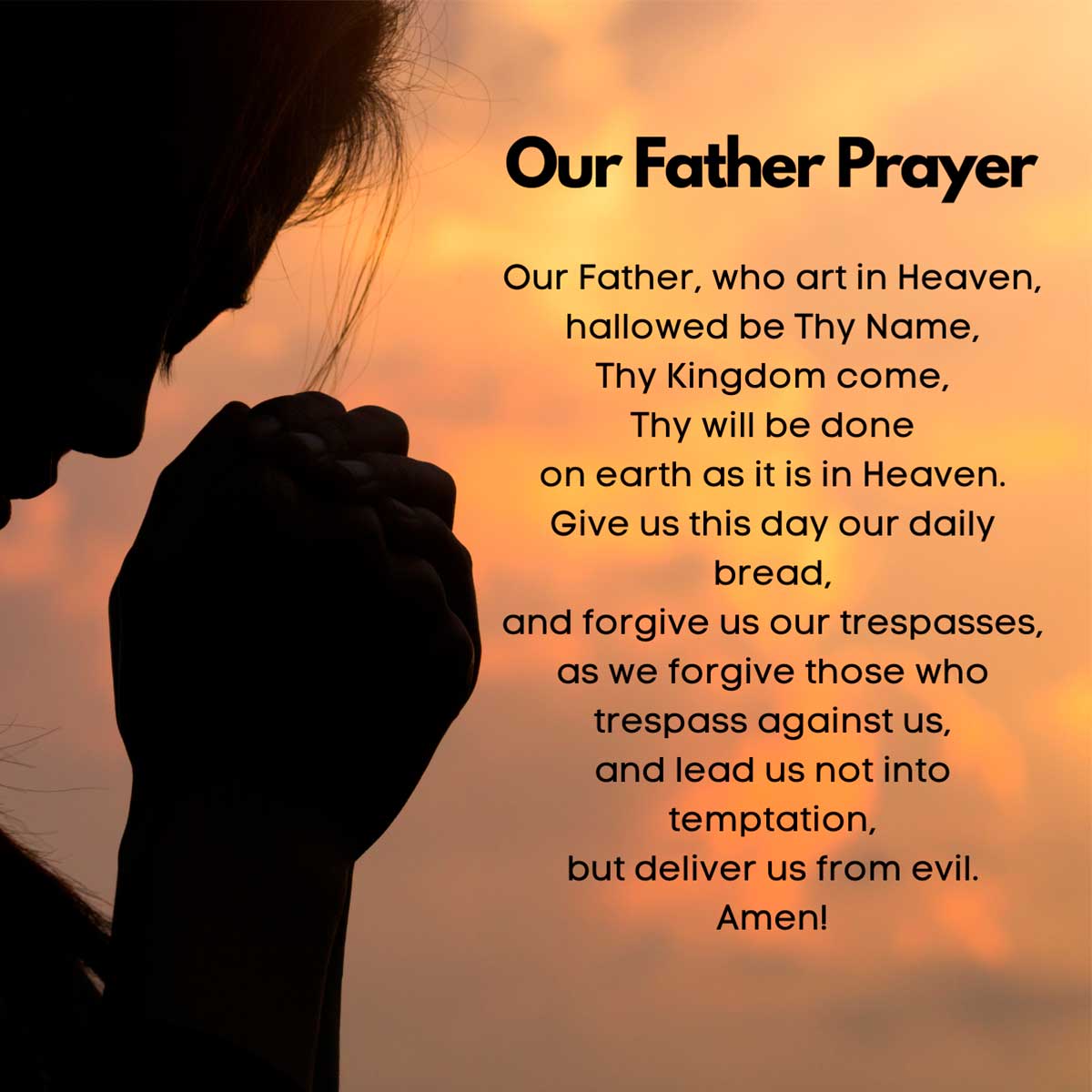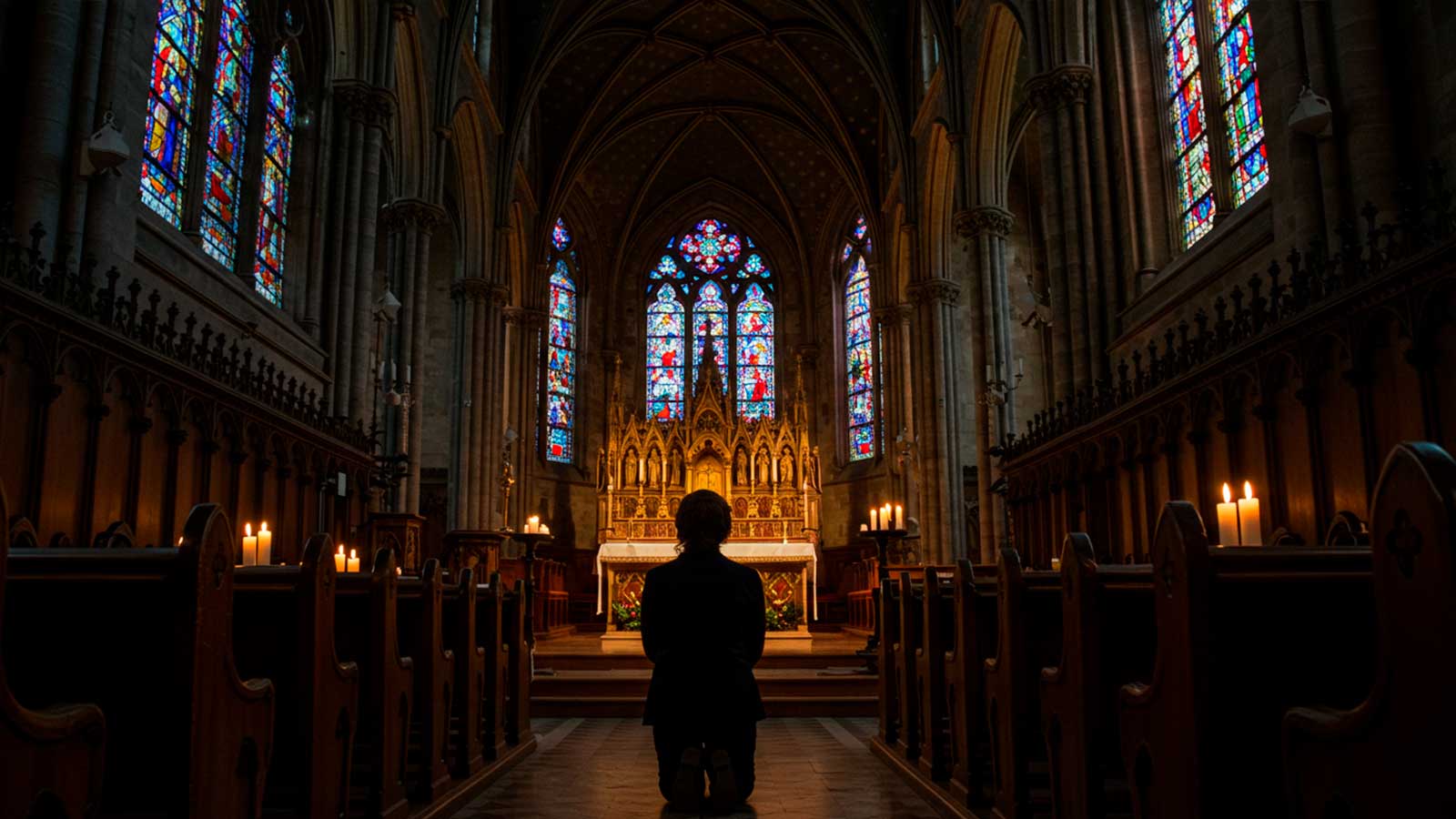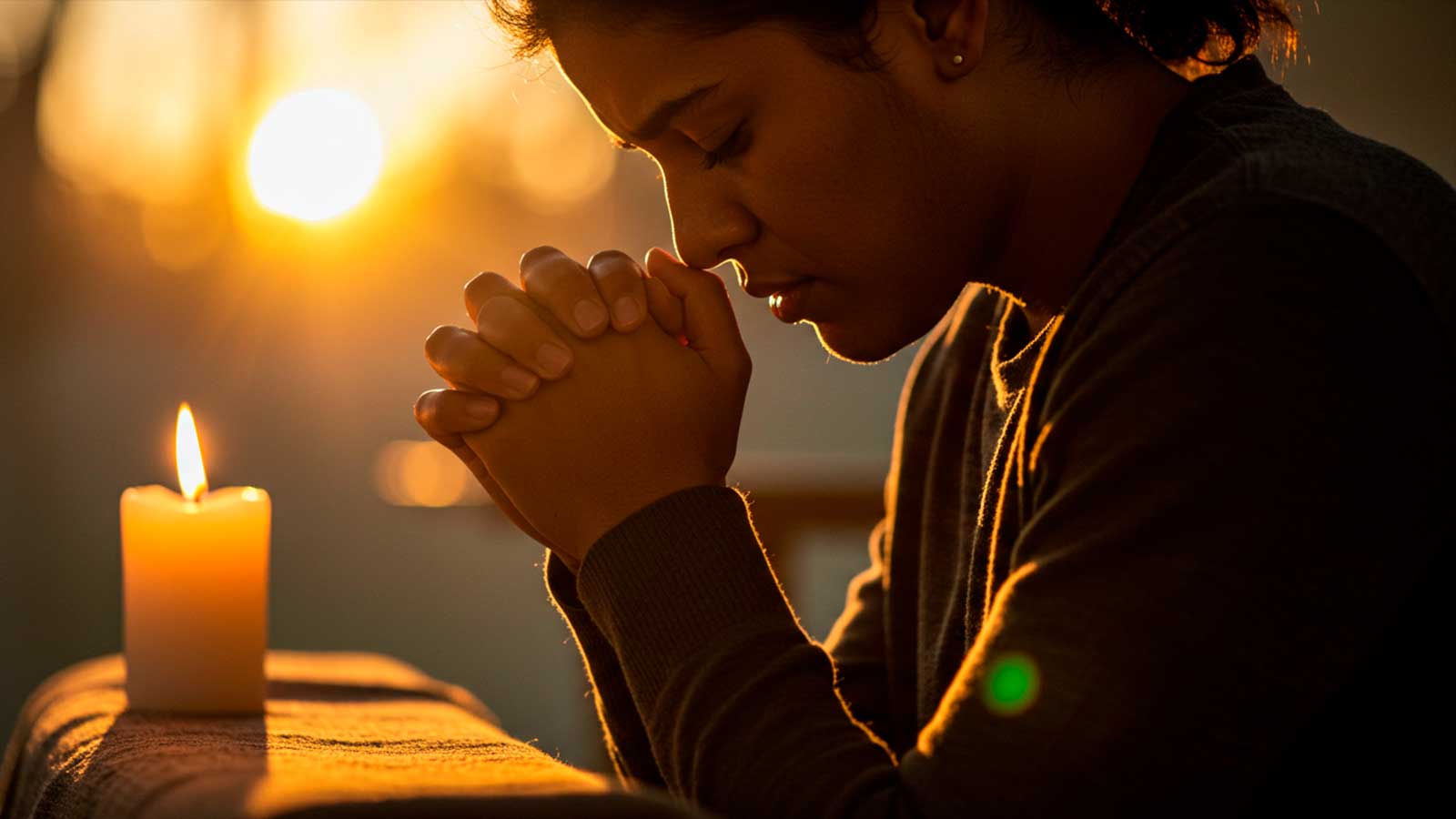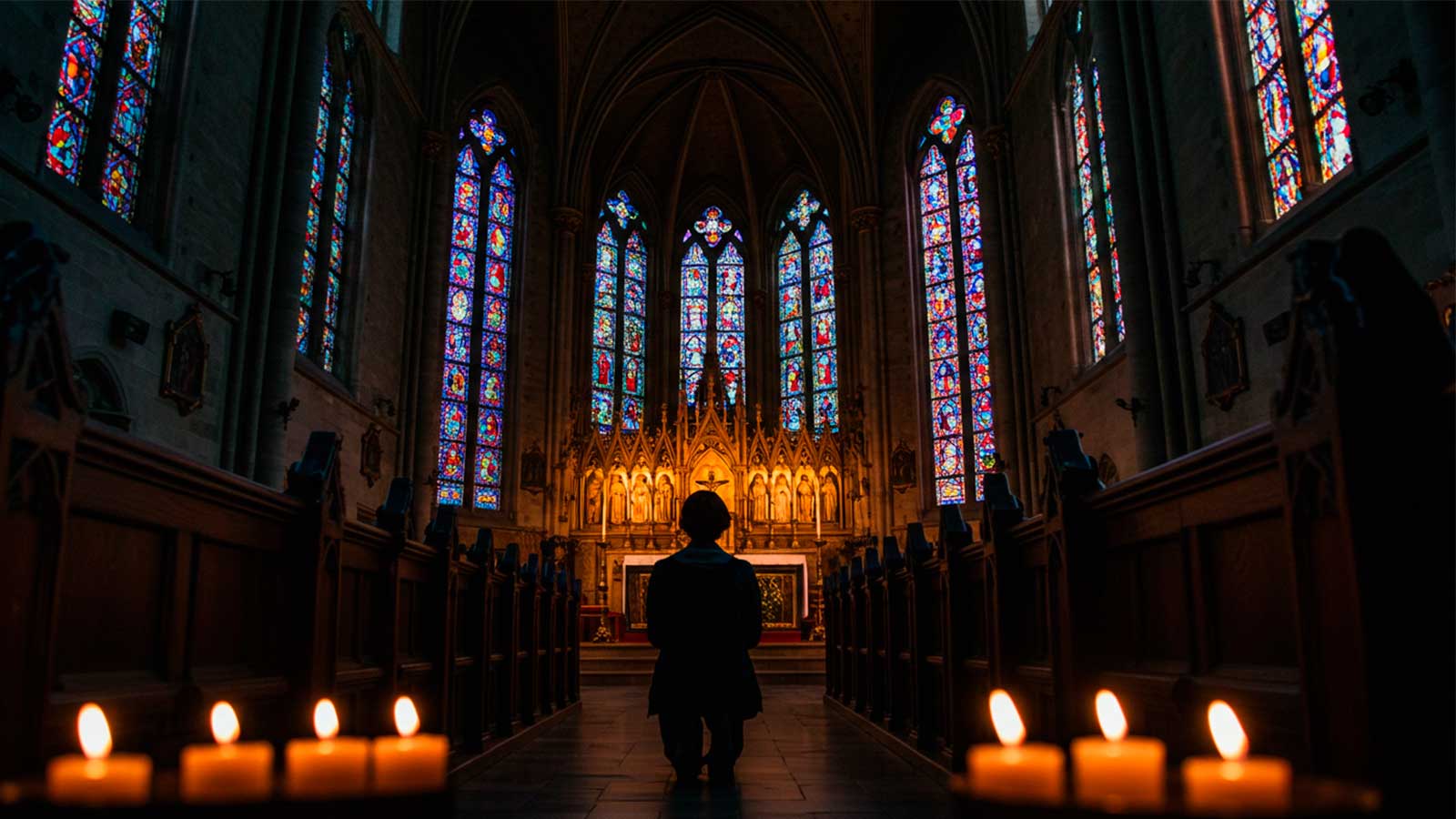The Profound Meaning of the Our Father
The Our Father prayer is one of the best-known and most recited around the world. With simple words yet deep meaning, this prayer is a spiritual guide for millions of people.
Since the time of Jesus Christ, the Our Father has been a model of connection with God and a symbol of faith, hope, and love.
Origin and History of the Our Father
The origin of the Our Father dates back to Jesus Christ’s teaching to his disciples. Recorded in the Gospels of Matthew and Luke, this prayer was taught as a model for those who wish to communicate with God sincerely and humbly. It contains fundamental elements of the Christian faith and expresses the deepest longings of a devoted heart.
The Our Father in the Bible
The prayer can be found in the Bible, more specifically in Matthew 6:9-13 and Luke 11:2-4. Both versions share the same purpose: to teach the faithful to pray with humility and trust in the Heavenly Father.
The Complete Our Father Prayer
Our Father, who art in Heaven,
hallowed be Thy Name,
Thy Kingdom come,
Thy will be done
on earth as it is in Heaven.
Give us this day our daily bread,
and forgive us our trespasses,
as we forgive those who trespass against us,
and lead us not into temptation,
but deliver us from evil.
Amen!

Each Part of the Our Father and Its Meaning
Our Father who art in Heaven
By beginning the prayer with these words, we acknowledge God as our loving Father, who dwells in Heaven and is above all things. This passage demonstrates reverence and trust in the Creator, reminding us that He is sovereign over all things and always cares for His children.
This part also reinforces the closeness and relationship we can have with God. He is not a distant and unreachable being, but a Father who loves us and desires our well-being.
Hallowed be Thy Name
This part expresses God’s holiness and the desire to honor Him. By hallowing His Name, we acknowledge His power and majesty. It reminds us of the importance of living a life that glorifies God, respecting His teachings and acting with justice and kindness.
The sanctification of God’s name is not limited to words, but must be reflected in our daily actions. When we act with love, compassion, and integrity, we are exalting the name of the Lord.
Thy Kingdom come
Here, we express the longing for the establishment of God’s kingdom on Earth—a kingdom of peace, justice, and love. God’s Kingdom is not only a future reality, but something that begins in our hearts and is manifested through our actions.
This passage also invites us to be instruments of God in the world, spreading His message and promoting values such as mercy, fairness, and brotherhood.
Thy will be done, on earth as it is in Heaven
This passage emphasizes the importance of submitting our will to God’s, trusting that His plans are better than our own. Often, we try to control everything around us, but this part of the prayer reminds us that God has a greater purpose for each of us.
Accepting God’s will can be challenging, especially in difficult times. However, this surrender brings us peace, for we know that He always acts for our good.
Give us this day our daily bread
Here, we ask God to provide for our daily needs, both material and spiritual. This passage does not refer solely to physical food, but also to the emotional and spiritual sustenance we require every day.
By making this request, we acknowledge our dependence on God and our gratitude for everything He provides. It also teaches us to live one day at a time, trusting in divine providence.
And forgive us our trespasses, as we forgive those who trespass against us
Forgiveness is one of the most powerful principles of the Our Father. We recognize the importance of forgiving in order to be forgiven. Jesus teaches us that to receive God’s forgiveness, we must also forgive those who offend us.
Forgiveness is not only an act of mercy, but also a path to personal liberation. Harboring resentment can imprison us, while forgiveness brings lightness and peace to the heart.
And lead us not into temptation, but deliver us from evil
In this passage, we ask for protection against temptations and deliverance from the forces of evil. In everyday life, we face various temptations that can divert us from God’s path, and this plea reminds us of the need to remain vigilant.
Moreover, we ask God to protect us from spiritual and physical dangers, guiding us along the path of righteousness.
Amen
The word “Amen” means “so be it” and reinforces our faith in what has been asked of God. It is a confirmation of our belief in the prayer and in divine will.

The Importance of the Our Father in Christian Life
The Our Father prayer is a fundamental pillar of the Christian faith. It not only strengthens spirituality but also promotes values such as humility, forgiveness, and trust in God. Reciting it regularly can bring inner peace and strengthen the connection with the divine.
How to Pray the Our Father with Faith and Devotion
Creating a Moment for Prayer
For the Our Father prayer to be truly meaningful, it is important to dedicate a moment of the day to spirituality. Find a quiet place, focus, and pray with an open heart.
Accompanying with Reflections
Each passage of the Our Father can be meditated on individually, bringing a deeper understanding of Jesus’ message.
Incorporating It into Your Routine
An excellent way to strengthen your faith is to include the Our Father prayer in your daily routine. Many people recite it upon waking, before sleeping, or in moments of difficulty.

Curiosities About the Our Father
The Our Father prayer has a rich and fascinating history, full of interesting facts that highlight its importance throughout the centuries. Below are some curiosities about this very special prayer:
1. Universal Prayer
The Our Father is one of the most translated prayers in the world. It is estimated that it has been translated into more than 2,000 languages and dialects, allowing millions of people around the planet to recite it in their native tongue. This widespread dissemination reinforces its role as a spiritual bond among Christians from different cultures and nations.
2. Variations Among Christian Denominations
Although the structure of the prayer is the same, there are small variations in the text of the Our Father depending on the Christian tradition. For example:
- In the Roman Catholic tradition, the prayer ends with “but deliver us from evil”, while many Protestant churches add the doxology “For Thine is the Kingdom, the power, and the glory forever. Amen.”
- Some Orthodox churches and Eastern denominations use slightly modified versions to suit their liturgical traditions.
These differences do not alter the essential meaning of the prayer, but show how different Christian communities have adopted variations over time.
3. Presence in Christian Liturgy
The Our Father is part of the official liturgy in several Christian churches. In the Catholic Church, for example, it is recited at every Mass before Communion. In many evangelical churches, the prayer is used in services and intercessory moments. Additionally, in Orthodox churches, it is often sung with beautiful traditional melodies.
4. Inscription on Monuments and Historical Sites
The Our Father prayer is featured in various architectural works and religious monuments around the world. A famous example is the Our Father Church located on the Mount of Olives in Jerusalem. At this site, the prayer is inscribed in more than 140 different languages on tiles spread throughout the church courtyard, symbolizing its universal importance.
5. Inspiration for Art and Music
The Our Father has inspired countless works of art, from paintings and sculptures to musical compositions. Great composers such as Johann Sebastian Bach and Franz Schubert created musical pieces based on this prayer. In addition, it is often used as a theme in films, theatrical plays, and even literature.
6. A Prayer with Profound Historical Impact
Throughout history, the Our Father has been recited by millions of people in moments of hope, despair, and spiritual renewal. During wars, persecutions, and major challenges faced by humanity, this prayer served as comfort and strength for those seeking peace and divine protection.
With its timeless and powerful message, the Our Father continues to be one of the pillars of the Christian faith, uniting people around a prayer that transcends generations and borders.

FAQ – Frequently Asked Questions About the Our Father
What is the main message of the Our Father?
The Our Father prayer teaches humility, faith, forgiveness, and trust in divine providence.
How many times should we pray the Our Father each day?
There is no set number, but many people pray it daily as part of their spiritual routine.
Can the Our Father be prayed at any time?
Yes! The prayer can be offered at any time, whether in moments of gratitude, need, or reflection.
Is there a shorter version of the Our Father?
Yes. In the Gospel of Luke, we find a briefer version of the Our Father that still maintains its essence.
Is the Our Father the only prayer taught by Jesus?
Although it is the best known, Jesus also offered other prayers recorded in the Bible.
Conclusion
The Our Father is a powerful prayer that spans generations and continues to be an essential spiritual guide for millions of people. Its profound meaning and message of faith make this prayer one of the most special in Christianity. Praying the Our Father with devotion can transform lives, bringing peace, hope, and a deep connection with God.
READ ALSO:
- Psalm 70: Prayer in Moments of Distress
- Joshua 1:9: The Promise of Strength and Courage for Your Life
- Psalm 70: Prayer in Moments of Distress
FOLLOW US ON FACEBOOK